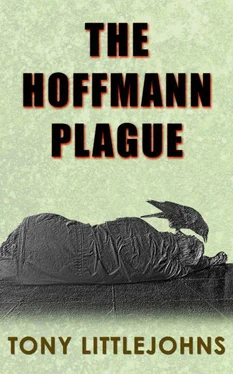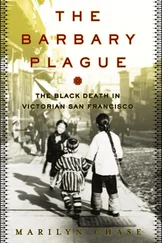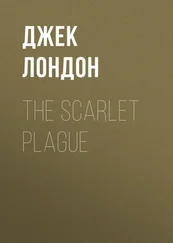By the end of November they had collected two more horses from the fields by the equestrian centre and had them settled at the farm. Jamie was getting more confident in the saddle and didn’t look terrified every time he mounted a horse, which Jane was pleased about. Megan and Sally were learning to ride the pony and, like most young people, seemed to have no fear about such things and approached it with excitement and enthusiasm. Peter was the same, though he was four years older than Sally and had done some riding before. Phil and Sophie were somewhere in between; they still had some of the exuberance of youth, but also the wariness of slightly older people.
Between the three households at the farm they had been working on the land over the past month, preparing it and sowing winter vegetable crops for the following spring. Jamie, Jane and Megan had settled well into their new home and had got used to having much less space. It seemed cosy to them now and needed far less wood to heat than the bungalow had done.
In the evenings since moving in they had continued with Megan’s education, as they thought it was important to do so. It was a relaxed learning environment and without the constraints of school Megan loved it and became enthusiastic about subjects that she had previously shown little interest in.
Along with the essential subjects of reading, writing and arithmetic, they taught her history, geography and domestic skills such as cooking and sewing, as she would need to be able to repair clothes in future years. As it was relevant to them they told Megan about the original Black Death: a combination of bubonic and pneumonic plagues that had devastated Europe for over four hundred years, on and off. They also told her of the 1918 – 1920 flu pandemic, which had been cited as possibly the most deadly pandemic in recorded human history; killing between fifty and a hundred million people around the world in less than three years. Megan was astonished by this; she was so used to hearing that someone had had “the flu” that she had trouble equating the two things. However, the new variant or mutation of the plague that had happened nearly a year ago made that pandemic seem small by comparison.
There were also lessons, some practical, on many subjects that had never appeared on any school curriculum before, to do with survival in the new world. These included setting traps for animals, map-reading, making fire, making water safe to drink, identifying edible plants, how to strip down a shotgun or rifle, and many more useful things that she was going to need to know in the years ahead. She seemed to absorb it all like a sponge and they made it a fun process. Once a week they had a quiz night to test her on things she had learned that week, with different treats on offer as prizes. Sometimes they would be food or drink prizes and other times they would be things she wanted to do.
One morning in the last days of November, Jamie, Bill and Jane were in the top yard by the stable when they heard a vehicle approaching in low gear on the rough track up to the farm. From their slightly elevated position they could see almost to the road, apart from the last fifty yards that were beyond a bend in the treeline. An army Land Rover appeared round the bend, bumping through the pot-holes. As a precaution Jamie went back to the house, coming out with his sawn-off over his shoulder and a handful of cartridges, which he put in his pocket, then the three of them walked down to the main yard to meet it. They stood by the small lawn in front of the mobile home waiting, and as the truck entered the yard Jamie and Jane recognised the occupants.
‘It’s Major Cunningham; he’s the doctor who treated Megan,’ said Jane for Bill’s benefit. ‘And that’s the nurse we met when we picked her up on the Sunday.’
The vehicle stopped and Cunningham and the woman got out and walked over to them, smiling. ‘Hello Jane, hello Jamie. Nice to see you again. This is Lieutenant Karen Chambers.’
The Lieutenant was in her late thirties and pretty, with short blonde hair and dimples in her cheeks when she smiled.
‘Hello, Major,’ said Jane, ‘and hello Lieutenant; nice to see you, too. This is Bill Anderson, who owns the farm.’
They all exchanged greetings and shook hands.
‘How is Megan doing?’ Cunningham asked.
‘She’s doing very well, thank you, Major,’ said Jamie, ‘and she’s fully recovered – thanks to you!’
Cunningham smiled, as did the Lieutenant. ‘I’m very pleased to hear it; that’s great news.’
He removed his glasses, ran his hand through his hair and then put the glasses back on. ‘Well, the reason we’re here is to have a chat with you, if we may. I’ll explain more in detail if you have time, but to cut a long story short the camp at Tunbridge Wells is closing in two weeks’ time and the unit is disbanding. We’ll no longer be army and Karen and I are looking for a place to settle in this area. When it happens we wondered if we might stay with you for a short while until we can sort something out.’
‘Well,’ said Bill, ‘why don’t we all go into the house and sit down, rather than standing out here in the cold?’ They all agreed and crossed the yard to the house. Emma was in the kitchen and introductions were made.
‘Hello Major, Lieutenant; it’s nice to meet you,’ said Emma.
‘Please, just call us Tom and Karen,’ said Cunningham.
Emma offered to make tea for everyone and then Megan came in with Sally, followed by Phil, Peter and Sophie.
‘Well, hello Megan!’ said Karen. Megan smiled, went over and hugged her.
‘Hi Karen, hi Doctor Cunningham. It’s nice to see you again.’
‘Hello Megan,’ said Tom. ‘Wow! You look well, and much better than the last time we saw you. You’ve filled out, too.’
Megan smiled. ‘Mum and Dad said I needed fattening up!’ She turned to Jane. ‘Mum; Karen was the first person I saw when I woke up and she was really lovely.’ Karen smiled and Jane nodded her appreciation to her.
Bill introduced them to Sally, Peter, Phil and Sophie, who all smiled and said hello. Tom asked how they were getting on and they chatted for a while about their accomplishments before Jamie asked what they all wanted to know.
‘So, Tom, you say the camp’s closing down?’
‘Yes. We’ve given it a lot of thought, but basically we’ve done all we can under the circumstances and there’s not much left we can do. Food, fuel and medical supplies are almost gone and we’ve used up the resources from the surrounding area. We’ve treated and fed around three hundred people since May and got them back to a decent state of health. Obviously, they weren’t all there at the same time as we couldn’t have coped, with only around sixty personnel. But people have come and gone as they got better and then drifted off to make new lives for themselves – or try to, at least. If I’m honest, I don’t hold out much hope for some of them, but hope I’m proved wrong.
No one has ever been faced with these circumstances before, but that’s out of our hands. We’re army and medical staff; we can’t teach them how to grow food or to become self-sufficient, though we gave lectures on a few basic things like making water safe to drink. Many people have made their way down to the coastal areas in Kent and Sussex and we’ve transported some, as we could. Some of them were from those areas anyway and have gone back to their homes as they recovered their health. My biggest hope is that survivors will form communities to help each other.
There are only a couple of dozen people left at the camp now and they’ve all been informed about what’s happening. The number of survivors on the roads south-east of London has dwindled almost to nothing in recent months. People just don’t seem to be moving around any more, especially as we’re going into winter. We’ve got people on checkpoints standing around all day doing nothing and personnel are getting restless to start making new lives for themselves.
Читать дальше












